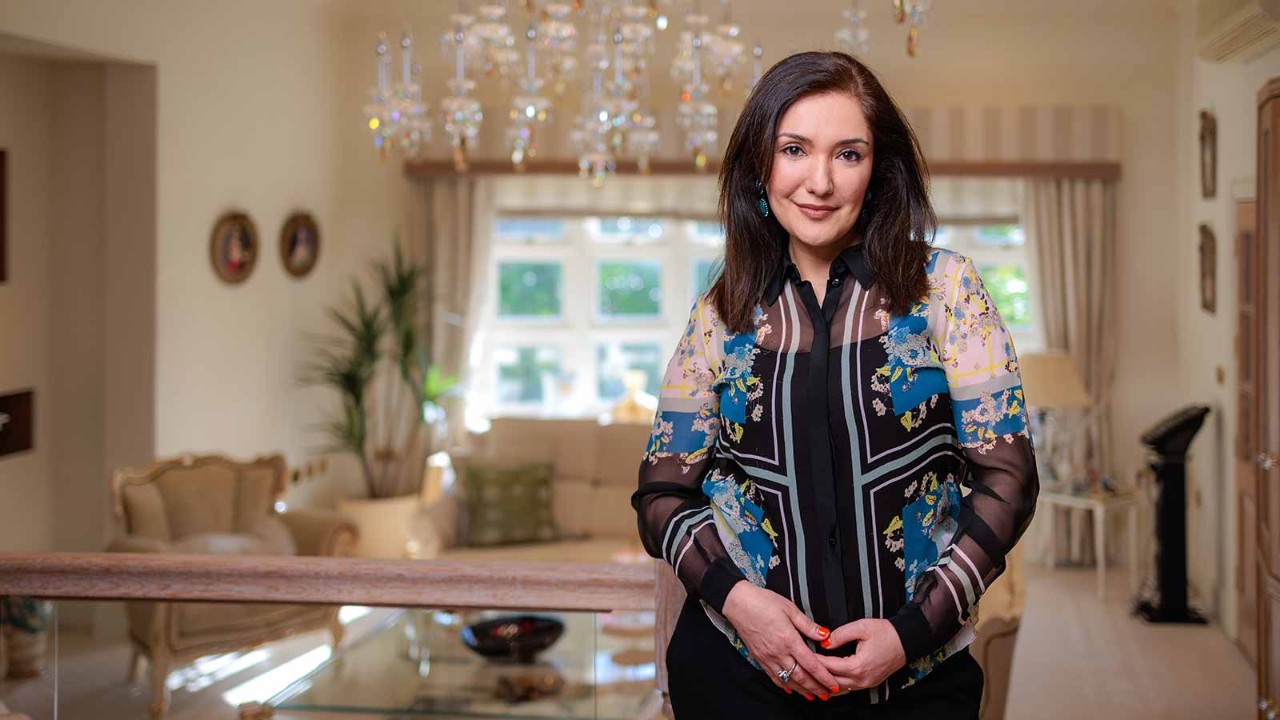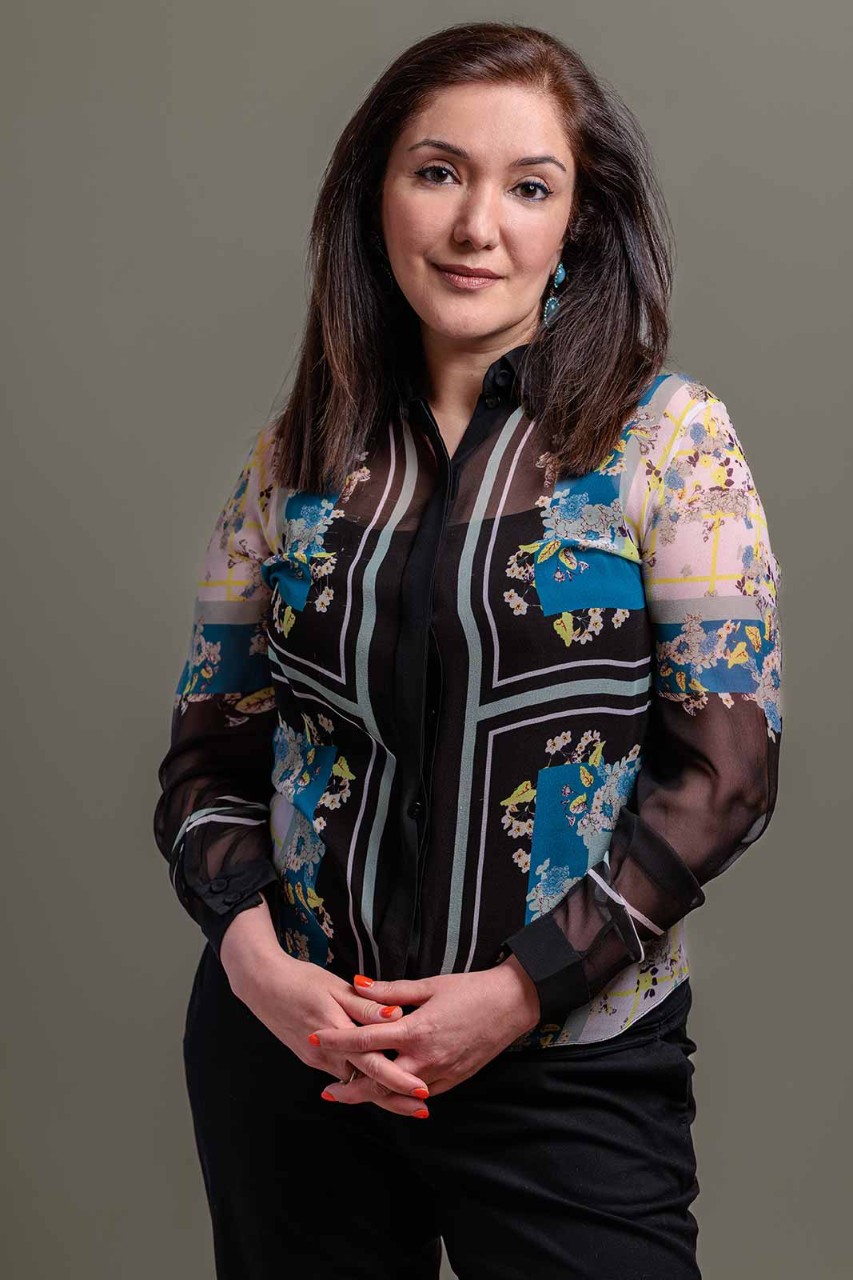
Back in 1986, Elham Fardad FCCA arrived in Birmingham as a 13-year-old war migrant. She had just a year’s worth of English lessons under her belt and no idea of what the future would hold.
Today, after a successful career in senior financial leadership roles for over two decades with such blue-chip organisations as GE, Compass Group, Severn Trent and News Corp, she is CEO of Migrant Leaders, a charity that helps develop migrants and other disadvantaged young people across the UK. It’s a charity that she herself launched while working as a senior manager in finance advisory at EY, and that has embarked on a mentoring partnership with ACCA (see 'Natural fit' panel).
There’s a wide and difficult gap between where she is now and her early life, so how did she bridge it?
War child
Her family had left Iran at the height of its war with Iraq, which killed millions of Iranians and Iraqis. ‘We were being bombarded every night,’ Fardad recalls. ‘I remember going to school every day, wondering which of my friends were still going to be alive. I didn’t realise that’s not normal until I came to the UK and experienced the security here.’
While moving to the UK was a huge wrench for the teenager, it was also cause for excitement. ‘I remember feeling this is a world of possibility,’ Fardad says. ‘The other thing that I noticed coming to the UK was the gender gap wasn’t as big here.’
'I remember going to school every day, wondering which of my friends was going to be alive and who was going to be dead'

Nevertheless, her first few years in the country proved challenging. Her family moved several times and she attended three different state secondary schools in three years. Later, when she wanted to go to university, she faced the prospect of being considered a foreign student because she had not yet spent 10 years in the UK.
Unable to afford the higher UK university fees paid by foreign students, Fardad decided to camp out outside the offices of Birmingham City Council in a campaign for home-student status. Three days later she was taken inside the council offices and introduced to someone who arranged for her to become a home student. The designation was a ‘lifeline’ because it enabled her to study accountancy and finance at university.
Meanwhile, Fardad’s father, an engineer, had returned to Iran for work, which resulted in the family being separated – temporarily at first, and then permanently. In the end, her parents divorced.
‘Even though my family were relatively educated, we still experienced some of the typical challenges that migrant families experience in terms of family breakups, lack of resources, lack of connections and lack of know-how,’ Fardad explains.
Migrant Leaders
Fardad launched Migrant Leaders in 2017 after coming across the Parker Review, which highlighted how people from ethnic minorities often struggle to reach the most senior levels of UK business. ‘I got worried for the young migrants and disadvantaged people, and the chances they have in this country,’ Fardad says.
‘I was also worried for the British economy, because if these young people don’t fulfil their potential, then the economy loses as well. I thought, I’ve got to do something about this. And that’s where Migrant Leaders came in.’
'If these young people don’t fulfil their potential, then the economy loses as well'
The charity aims to address the root causes of why first- and second-generation young migrants, and other disadvantaged young people, don’t fulfil their potential. Migrants often lack the professional contacts and work experience that can pave the way to skilled employment.
Research by the Institute for Fiscal Studies highlights that while migrants in the UK tend to have high levels of qualifications, many are working in jobs that require much lower levels of skills.
Road to a profession
Mentoring is a big part of the Migrant Leaders programme, which is sponsored by Anglo American, Smith & Nephew, Kantar, ABB, Westcon, Illumina and Salesforce. Currently, just over 950 young people are being mentored by professionals from 95 large companies, including the seven corporate sponsors as well as organisations such as Burberry, EY, HSBC and Unilever. The mentees are also able to access workshops, training, internships and work experience co-designed and delivered through Migrant Leaders' corporate collaborations.
'Migrants don’t come here to fail, they come here to succeed'
Natural fit
Migrant Leaders and ACCA have embarked on a partnership to encourage current ACCA students to apply for the Migrant Leaders programme. Students who join the programme will continue with their studies while benefiting from the support of a mentor and the Migrant Leaders team, who will help them to make contacts, get advice and secure work experience.
Young people aged between 16 and 25 can apply to join the programme, and they will typically stay on it for up to five years. ‘We keep them on the programme until they land their first professional job,’ Fardad explains.
‘They need to do a lot in those five years in order to have careers. They need to build deep relationships with the corporate contacts that we provide to them.’
It’s not just the mentees who benefit from the programme either. The companies do too. ‘Some of the STEM [science, technology, engineering and mathematics] employers recognise that if they’re going to be innovative, they need diversity of thinking,’ Fardad says. ‘What better way of bringing in diversity of thinking than through migrant young people who have had a wide set of experiences?’
Career fuel
Fardad began studying for her ACCA Qualification immediately after leaving university, seeing it as a way to use her time productively until she turned 23 and would finally become eligible to work in the UK.
‘I thought ACCA was really well rounded,’ she says, ‘because it covered financial accounting, management accounting and financial strategy. I thought, when I do have a work permit, I can get a job in one of those areas of finance.’
Based on her own experiences, Fardad believes that studying for the ACCA Qualification is a good option for migrants and other disadvantaged young people. ‘This is because the skills you learn are directly applicable to a finance and accounting career, and that is applicable to a wider business career,’ she says.
‘Many young migrants are studying subjects that aren’t directly applicable to a profession, which is one of the reasons why they are often behind in employment terms.’
Fardad is passionate about helping to unearth the talents of migrants who come to the UK. ‘Migrants don’t come here to fail,’ she says. ‘They come here to succeed. And that drive to succeed is really valuable to the British economy.’



